Ralph Lauren Center Marks Its First Year at Georgetown
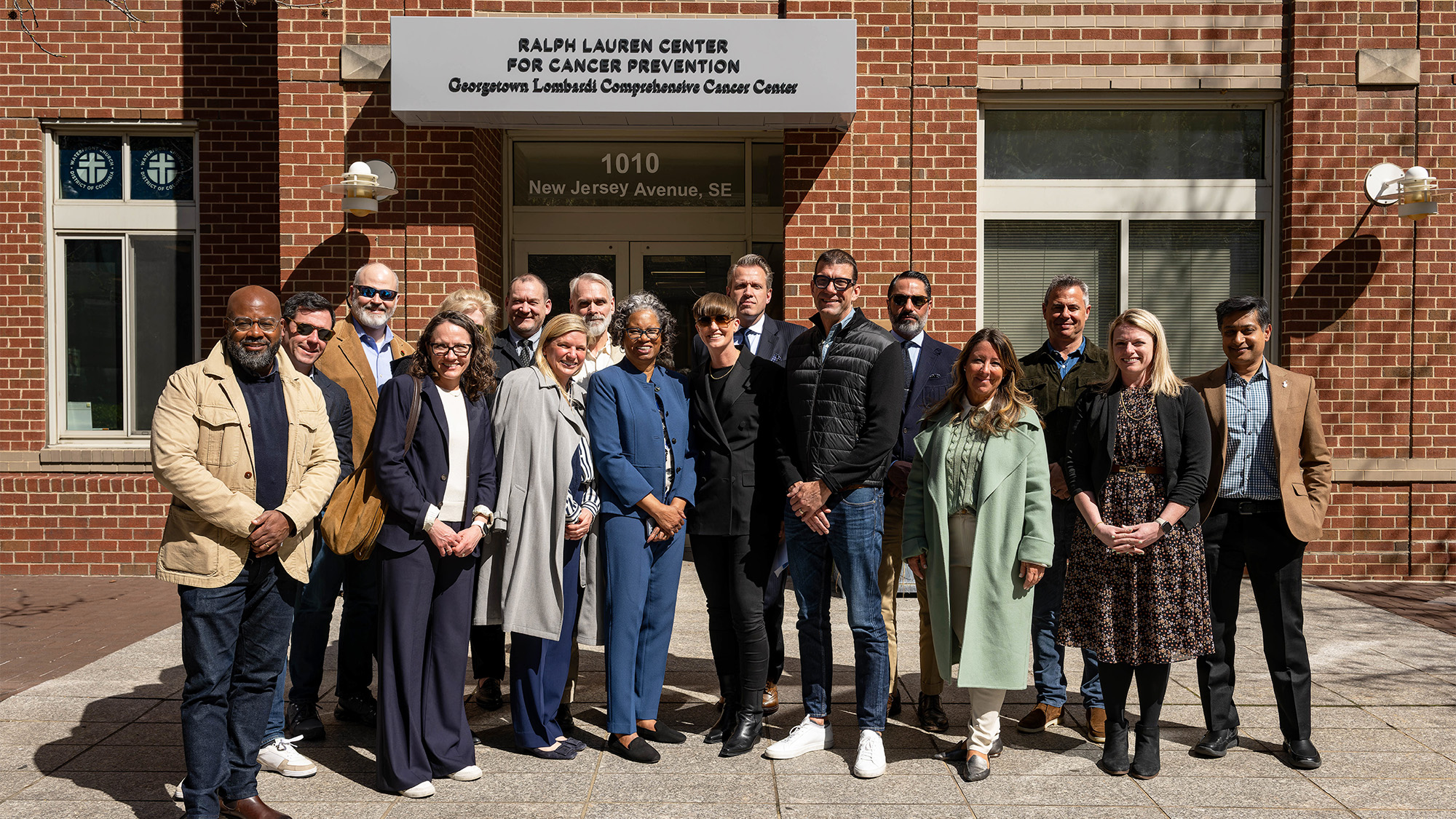
Posted in Lombardi Stories | Tagged cancer prevention, cancer screening, community outreach, health disparities, health equity, Ralph Lauren Center for Cancer Prevention
(April 10, 2024) — Since its April 2023 opening, Georgetown’s Ralph Lauren Center for Cancer Prevention has touched hundreds of lives by delivering cancer education, legal services, patient navigation, and opportunities to participate in clinical trials.
The Ralph Lauren Center, part of Georgetown University’s Lombardi Comprehensive Cancer Center, was dedicated with the goal of providing cancer-related services to those who have been historically underserved in the Washington, DC, area. The center was made possible by a long-term gift from the Ralph Lauren Corporate Foundation.
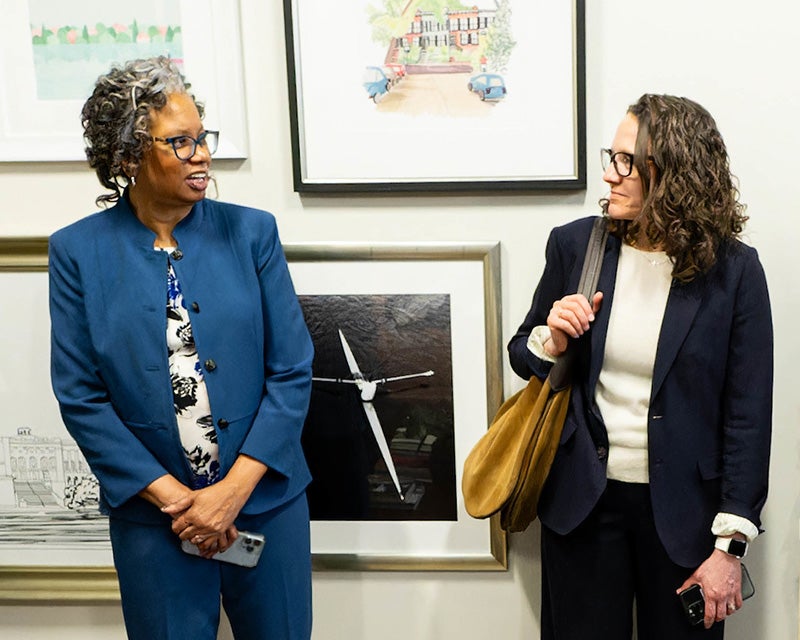
Located in the southeast part of the District, the renamed center expanded on the services offered by the Capital Breast Care Center in the previous 15 years and now includes comprehensive cancer education, community outreach and screening resources for breast, lung, colorectal and prostate cancers. When necessary, the center also navigates patients across the continuum of cancer care from diagnosis to treatment and survivorship.
“None of this would be possible without the generous support of the Ralph Lauren Corporate Foundation,” said Lucile Adams-Campbell, PhD, founding director of the Ralph Lauren Center. “We’ve seen a notable increase in community engagement because of the power of the Ralph Lauren name. In the end, the foundation’s support has had a multiplying effect in bolstering the services we offer and also in opening doors in the community.”
Tailoring Outreach
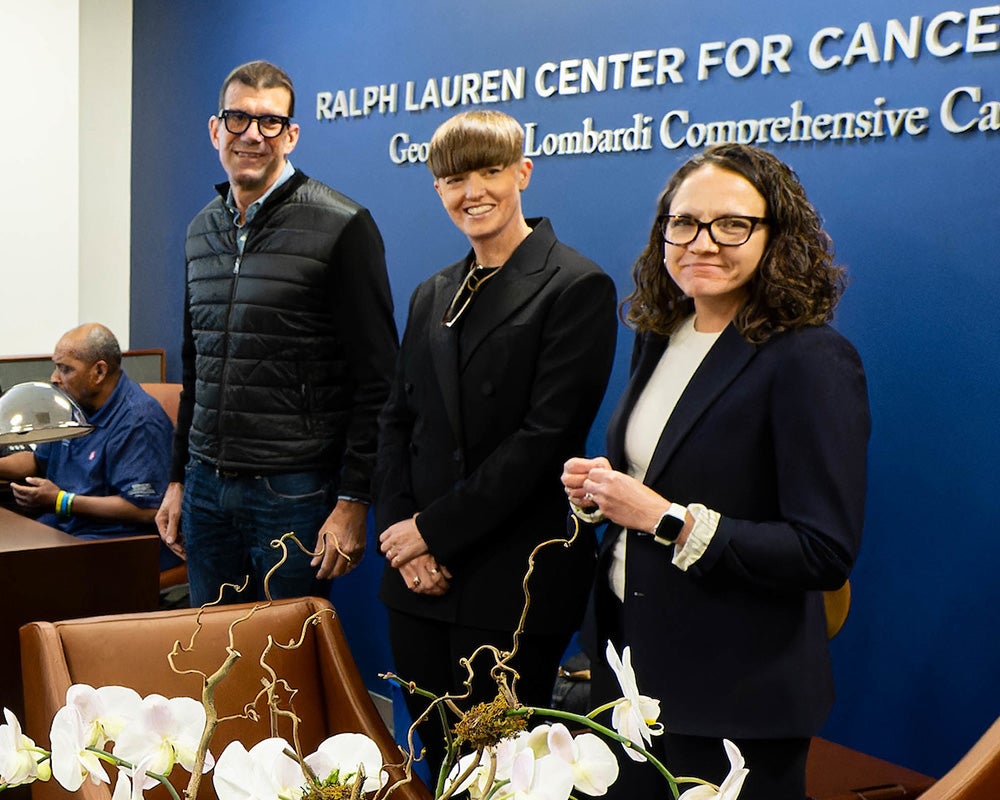
In March, members of Ralph Lauren Corporation’s senior leadership team toured the center. The team, mostly from the New York headquarters, was in Washington to visit the company’s retail stores, but the tour of the Ralph Lauren Center brought the team face-to-face with the company’s philanthropic mission.
“The center ties to Ralph Lauren’s purpose — to inspire the dream of a better life — and that extends to the communities that this center serves,” said Bob Ranftl, regional CEO, North America, Ralph Lauren Corporation. “This is something that’s been important to Ralph for a very long time, and to see it come to life with the passion of all the people working at this center is just fantastic.”
During their tour, Ranftl and his colleagues engaged with several of the center’s health educators about the impactful work that has ramped up over the last 12 months.
Faith and Health Care
During the tour, Aisha Choudhri, MPH, the Community Health Educator at the center, shared details about her novel work to increase the uptake of cancer education and prevention screenings in the local Muslim community. Her goal is to ensure outreach and education is appropriately tailored.
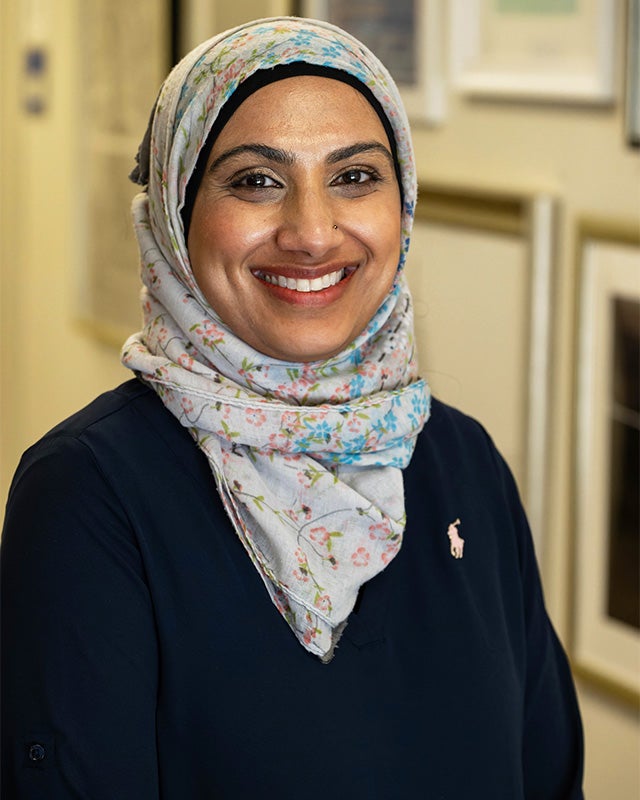
“We looked at the health needs of the Muslim community, including health and cancer screening behaviors,” Choudhri said. “We found that participants reported overall lower cancer screening rates compared to those in the DC, Maryland and Virginia area. In particular, rates for colon cancer screening were about 35% among those surveyed, compared to the DMV area with reported rates as high as 80%.”
Findings from her study also suggest a role for the mosque as an institution for health promotion and cancer screening. “We asked what kind of health education initiatives Muslims wanted to see in their places of worship,” Choudhri said, adding that planning is underway to provide tailored education about how faith and health go hand-in-hand. Encouraging health-promoting behaviors within a religious lens and framework could be an effective health intervention strategy.
“It doesn’t have to be one or the other,” she said.
From Start to the Finishing Bell
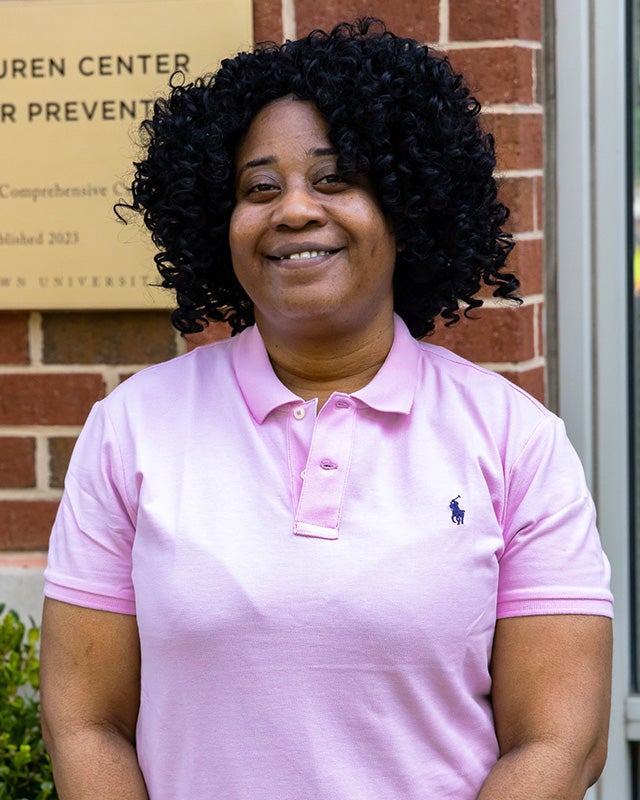
Patient navigator Rhonda Hamilton shared a recent story about guiding a patient from her breast cancer screening to a diagnosis. Hamilton continued to navigate the woman through the end of treatment.
“We were able to get her insured, diagnosed and treated, and about three weeks ago, she rang her bell [noting the end of treatment] — she’s cancer free!” Hamilton said. “Good people were able to provide the support that she needed, and she’s really grateful for the care she received.”
“It’s a pleasure being a navigator,” Hamilton added. “I enjoy working with the community, especially working with residents within the heart of the community.”
Cancer LAW
The Ralph Lauren Corporate Foundation’s gift to Georgetown also provides enhanced support for the Cancer Legal Assistance and Well-Being project, or C-LAW, a part of Georgetown’s Health Justice Alliance.
“There’s only so much that can be resolved by our navigators, by our doctors, by our drug treatments,” Allison Dowling, JD, director of C-LAW, explained during a discussion with the touring leaders. “There are still these outlying factors — what we call health-harming legal needs. And it’s where a medical-legal partnership attorney can come in and actually serve the patient with and alongside the medical team.”
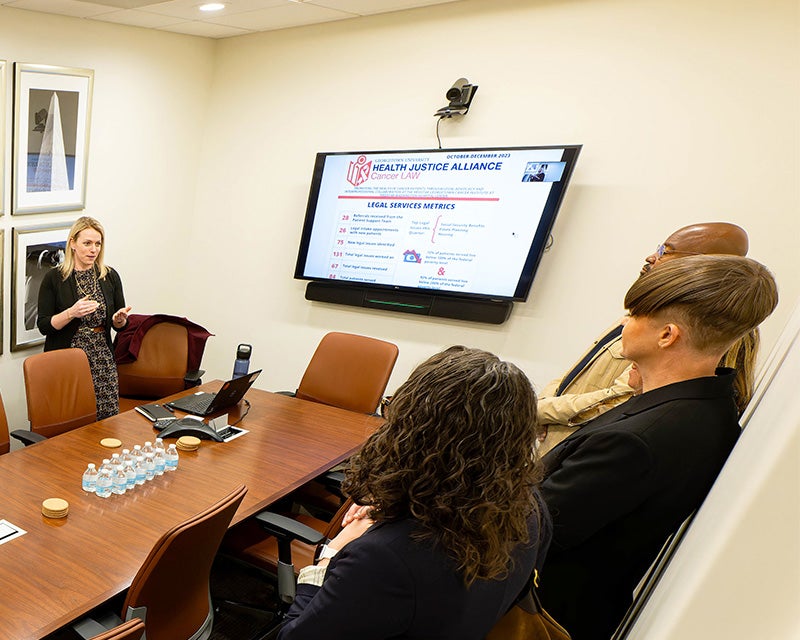
The legal needs of cancer patients aren’t always directly linked to their diagnosis. For example, Dowling shared a story about a man diagnosed with terminal cancer who was facing eviction during his treatment. Months earlier, a water pipe had broken in his kitchen and the patient had had to deal with several inches of standing water for weeks, despite reporting the water and eventual mold. After the patient, with the help of a C-LAW attorney, wrote a letter requesting that the landlord fix the pipe and remediate the mold, the landlord illegally retaliated and filed an eviction notice in court.
“This was a long, drawn-out process. It took more than 18 months to get the case settled and eventually dismissed,” Dowling said. “The apartment was fixed and back rent was waived. He was able to stay in his home and not worry about becoming homeless.”
The C-LAW project served 129 patients and their families over the past year, assisting with estate planning, obtaining social security benefits, securing housing and obtaining income support, including paid leave, health insurance and food stamps.
By the Numbers
An important guiding principle of the center is to meet people where they are in the community, at churches, federally qualified health centers, local community clinics, homeless shelters and grocery stores, Adams-Campbell said.
It’s a strategy supported by the number of people engaged over the last year. In the first nine months operating as the Ralph Lauren Center, 268 patients were served. The center received 158 referrals, mostly from community partners, and 27 patients enrolled in clinical research.
The care team planned 78 health education sessions on topics including breast, prostate, colon and lung cancers that were attended by more than a thousand people. Most community partnerships center around faith-based organizations, but they also include food and grocery collaborations and visits to community centers.
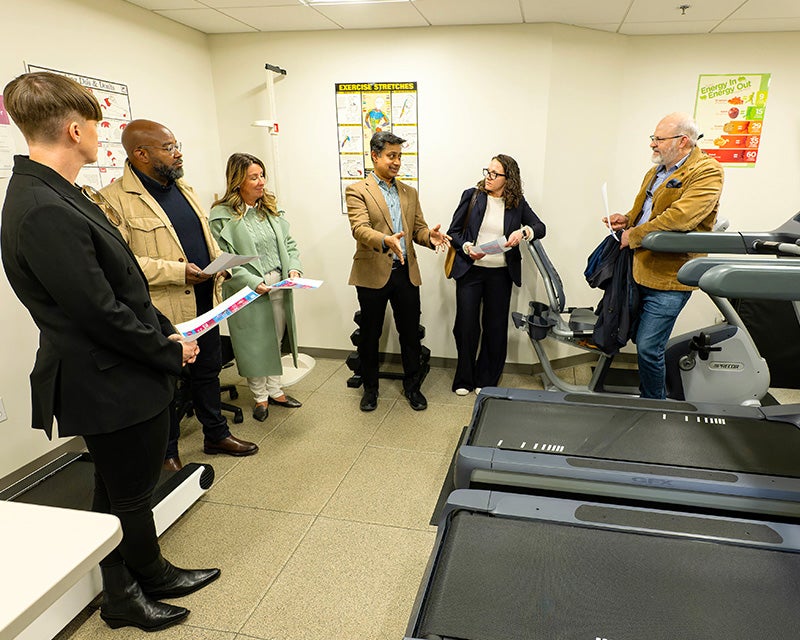
“This kind of engagement reflects the interest our community members have in being proactive advocates for their own health,” said Adams-Campbell.
In addition, the Ralph Lauren Center now offers a community outreach and engagement (COE) internship led by faculty and staff.
The six-week program provides immersive training in ongoing COE projects in the DC area, including activities related to patient navigation, outreach and health education. Interns devote 20 hours a week, work closely with center staff and participate in three to four outreach events.
In the summer of 2023, the internship included two post-baccalaureate students, in addition to an undergraduate and a graduate student.
“We created the internship program as a response to the overwhelming interest in community outreach and engagement among students across the training spectrum from Georgetown and beyond,” said Chiranjeev Dash, MBBS, PhD, MPH, assistant director of health disparities research and an associate professor of oncology in the Office of Minority Health and Health Disparities Research. “It also gives us an opportunity to introduce a diverse cadre of rising cancer researchers and physicians to the importance of community partnerships in the work that we do at the center.”
Long-standing Support
Ralph Lauren’s support and partnership with Georgetown Lombardi dates back more than 40 years. In 1983, he and Katharine Graham, then-publisher of The Washington Post, co-founded the Nina Hyde Center for Breast Cancer Research at Georgetown Lombardi in honor of their close friend and former fashion editor Nina Hyde.
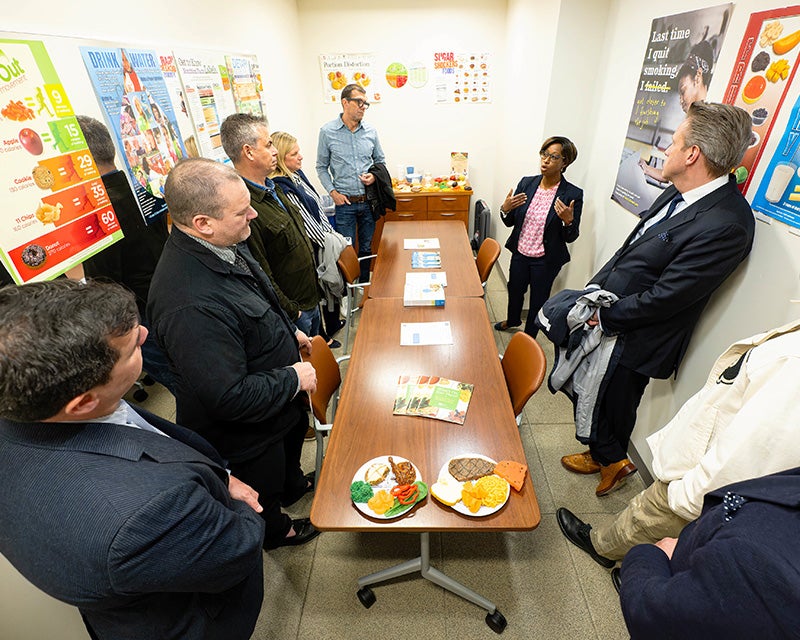
The Ralph Lauren Center in Washington marks the first of five new or expanded eponymous centers planned in underserved communities across the United States, made possible by the foundation’s $25 million commitment in new grant funding in 2022.
At the end of the visit by Ralph Lauren Corporation leaders in March, Dante Tauro, head of construction for the company, said he’s proud to be a small part of the work that contributes to important efforts in the community.
“This is a special treat — we never have done something like this,” he said. “It opens up my eyes to what the corporation I work for does other than just sell polo shirts and jeans. I was aware of the walks we do every year, but to actually see [the center] means a lot more.”
